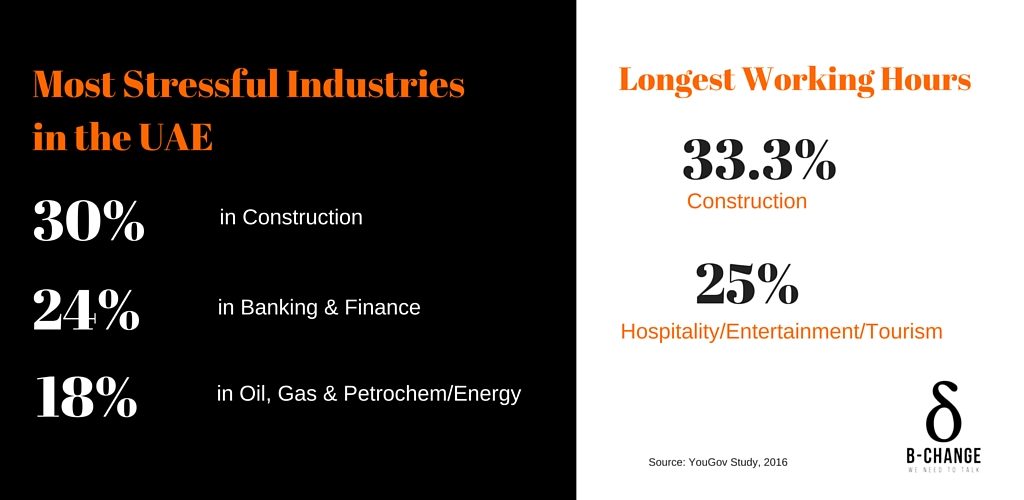The S-word. It’s thrown about like dust in the wind.
What many of us intuitively know, but forget to recall is that stress can be good for you. When managed and channeled right, stress can increase productivity and drive. Otherwise you’d be laying back at the office, shrugging your shoulders at the sight of mounting work.
If you categorize yourself as ambitious and high achieving, here’s some unsurprising news: you may be more prone to stress than others.
Madeeha Afridi, MA, MEd, Counseling Psychologist at The Lighthouse said there are factors that increase accumulation of stress for ambitious people:
It includes the mindset of perfectionism, the ‘I have to do it perfect (which is subjective, in turn, un-achievable) or ‘this is not good enough,’ and having an innate need be #1 or ‘best’ at whatever they set out to do, and if they are not, they can be extremely hard on themselves.
It seems fairly obvious; the more you want it, the more you stress about getting it.
Much like a drug, the positive outcomes of success make you want more, releasing dopamine in the brain. It can become a vicious cycle of endless guilt, anxiety, confidence and worthlessness.
As reported in Khaleej Times, a survey in 2015 shows that
60% of all residents in the UAE suffer from stress.
We dug deeper to identify how ambitious people can find a balance between ambition and satisfaction:
1. Choose the right career for you
Ambition-related stress can begin at the very beginning – if you are ill-suited to the field you’ve chosen, it can affect the way work affects your stress levels.
We found the follow stats from a 2016 YouGov study in the UAE:
2. Examine your motives
For many, ambition can be sourced from external feedback, and if you’re searching for appreciation and validation from the outside, you need to start asking questions, as Dr. Afridi suggests:
If you have the desire to be recognized as top in your work, first up for promotion, climbing the career or social ladder, being liked and accepted by others, then ask: Why it is so important to you? What meaning it has for you? And what your “victories” actually do for their overall well-being once they have achieved them?
3. Switch off the social media jealousy switch
Unconsciously or quite consciously, many of us measure our success by comparison with peers.
Colleagues engaging in self-development or getting a promotion, having a fun working life [a shoot or perhaps a dog at work], and snaps about leaving work at 3am can add pressure to an already stressed ‘go-getter’.
To combat this overwhelming sense of not doing enough, Dr. Afridi suggests:
Gain a greater sense of self-awareness, of personal strengths and traits, and manage your life in a more mindful and disciplined manner that is less focused on external and quick sources of gratification, and more internally focused, such as practicing mindfulness or relieving stress through forms of exercise or self-reflection.
It’s also important to recognize that social media is a cropped version of reality.
4. Don’t forget about all the other things
This one has been repeated time and again, but in our frenzy to succeed, we often forget that downtime doesn’t need to be earned. You need it to survive.
Dr. Afridi offers some insight:
We are not victims of stress, rather we have the power to choose and re-evaluate our thoughts patterns and belief systems, which are leading to the stress.
She highly recommends finding your own way to manage and cope with stress. Some healthy suggestions include:
Balanced habits of sleeping and diet, a regular exercise routine, yoga, journaling, reading books that enhance one’s level of self-awareness, meeting with a psychologist to explore and learn about healthier ways of managing stress and processing everyday life events in a helpful and balanced manner, online lectures and videos on personal development, connecting with people that make you feel peaceful and positive, learning and practising mindfulness in everyday life, listening to soothing or upbeat music and guided relaxation visualizations.
Meditation can also be helpful. She advocates exploring what type of meditations suits you, since there are as many forms of meditation as there are sports.
Explore the best method for you, and while you do, remember that professional success doesn’t happen overnight. Be patient, consistent and stress-free.
Do you think you ambition is stressing you out? Tell us how you cope with ambition related stress in the comments below.
Don’t Miss: 4 Jobs for Undergraduates in the UAE, Here’s Some Expert Advice to Stop Negative Thinking









